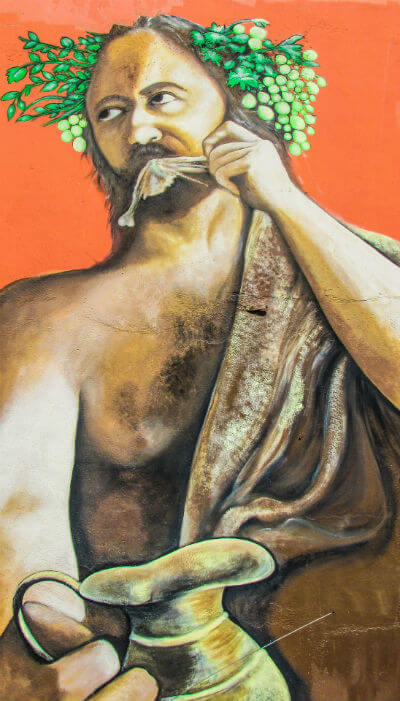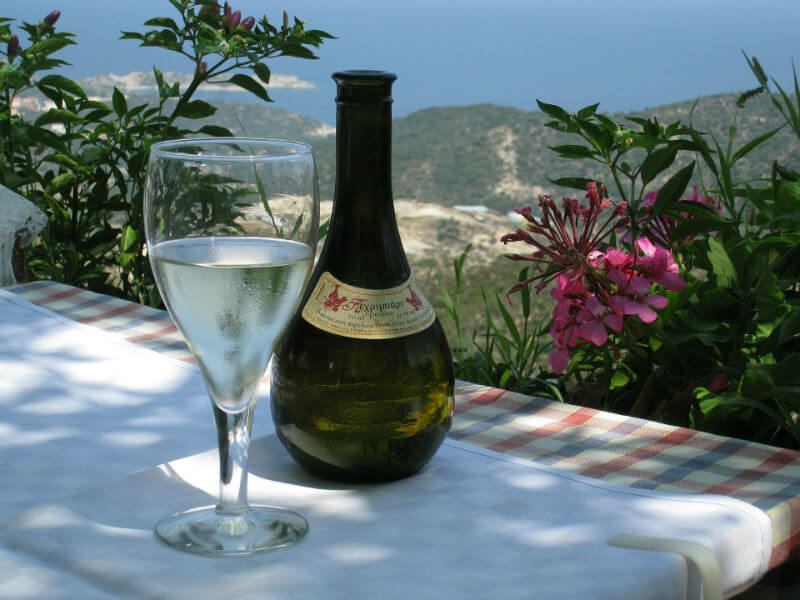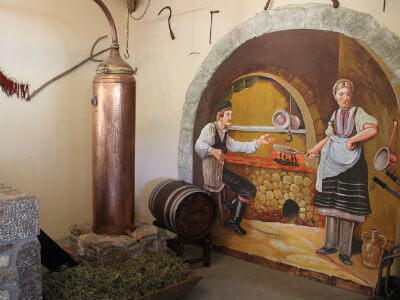Greek Wines
Extensive information on the Greek wine sector, Greek family owned wineries, wine regions, native Greek grape varieties, history of Greek wine, harvest reports, current events, press and media coverage.
Extensive information on the Greek wine sector, Greek family owned wineries, wine regions, native Greek grape varieties, history of Greek wine, harvest reports, current events, press and media coverage.

Thousand years of tradition, Dozens of new tastes and varieties ,Greek wine brings fresh air in the wine world.
In contrast to the ‘New world’ influx of low priced wines coming from mass-production cultivation, Greek wine has to show the revival of ancient and the plantation of new varieties, the rediscovery of new -long lost- unique tastes in wine and a price range quite competitive for the quality in hand.

The word "wine" owes its name to the king of Aetolia, Oinea.

"The peoples of the Mediterranean began to emerge from barbarism when they learnt to cultivate the olive and the vine." -Thucydides, Greek Historian, 5th Century BC

Homer claimed that "wine drunkenness is equivalent to madness, as well as a dangerous pleasure."
Plato said that wine is called wine, from the word oenoi which means "filling the mind with a feeling"
Sophocles said that "wine is the medicine against misery."
In the depths of prehistoric times the traces of the vine are lost. The earliest wine was probably produced by fermented grapes around Georgia and Armenia in the prehistoric era-around 8000 to 6000BC, as suggested by agrological evidence. Other evidences also point the origin of wine to Georgia. Gene mappers mapped the origin of many major wine brewing families to a region in Georgia where the archeological evidence was found. Also, evidence of domesticated grapes in the same region suggests that wine originated there.
In Greece, according to mythology, Bacchus brought it from India. From Greece the cultivation of the vine was extended to the rest of Europe, initially in Sicily and on the coasts of southern Italy by Greek settlers, and then in Spain and the southern France, where the national beverage was the beer of barley, and Roman conquerors in northern France, Germany, Hungary, Britain and elsewhere.
Greek wines are now awarded the highest distinctions in international competitions – among thousands of wines from countries that have been holding winemakers for years – making their value universally accepted. The steps are rapid, considering that in 1963 only the first imported variety was cultivated in Greece. In the same decade, due to the rapid growth of tourism, traditional retsina is a national drink, while in 1971 the legislation on designations of origin is introduced.

Greece is suitable for wine production almost in its overall area. In Greece one can find wines coming from famous International varieties and wines coming from local varieties as well.

Greece currently has 28 Appellations of Origin, certified by OPAP (High Quality Designation of Origin) and HEPA (Approved Origins of Origin - for sweet aperitif wines).
Many wineries are located in rural areas and make excellent places for holidays. The calm, rural atmosphere presents an ideal escape from urban life, either for a vacation or simply an enjoyable day in the country.
Wine consumption has influenced our political and religious beliefs. Certain civilizations were so enraptured by this beverage, that they formed entire religious cults devoted to its promotion. Other religions used wine in their ceremonies, some of which continue in today’s world.
Wine has even influenced the way we look at our health. People throughout the centuries have consumed wine in order to escape from their daily worries and problems. Recently, we have even found evidence of medical benefits from the moderate consumption of wine. These newly discovered advantages have led more people to drink wine now than ever before.
Wine has also impacted our agriculture. The vineyards of Europe have undergone many replantings since the first commercialisation of wine centuries ago. These replantings not only affected the wine industry, but the environment around the vineyards as well.

Wine can of their wits the wise beguile, Make the sage frolic, and the serious smile. – Homer
The development of wine closely parallels that of western civilization. As civilizations became more advanced, so did the wine industry. Where wine was once only available to a select few, it eventually came to be found in almost every home throughout the world.